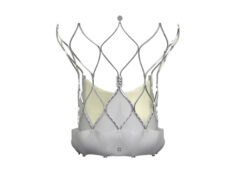Gilbert Tang (New York, USA) talks to Cardiovascular News about the key findings from the CUTTING-EDGE registry, the first international registry to look at the outcomes of patients undergoing mitral valve surgery in patients who had experienced aborted or delayed transcatheter edge-to-edge repair using the MitraClip (Abbott) device. Findings from CUTTING-EDGE were initially presented during a late-breaking trial session at the PCR Valves e-course (22-24 November, virtual).
Tang tells Cardiovascular News that there have been over 100,000 transcatheter mitral valve edge-to-edge repair procedures performed worldwide using the MitraClip device, but explains that the rate of failure of the device is relatively low. However, he notes that there have been very few reports published looking at longer term outcomes of mitral valve surgery following MitraClip failure, which was the focus of CUTTING-EDGE.
We have followed these patients for a median time of around 20 months, the shortest was around eight months all the way up to four years after the initial clip. What we have found is that recurrent MR [mitral regurgitation] needing surgery is [present in] around one third [of patients], and one third had leaflet detachment, Tang said, sharing insights from the registry.Further investigation is required into the timing and mechanism of the failure of the procedure, Tang said, in order to understand if these patients could be better treated surgically from the initial consultation, as well as understanding the relative differences in the rate of failure between early and later generations of the MitraClip device.










